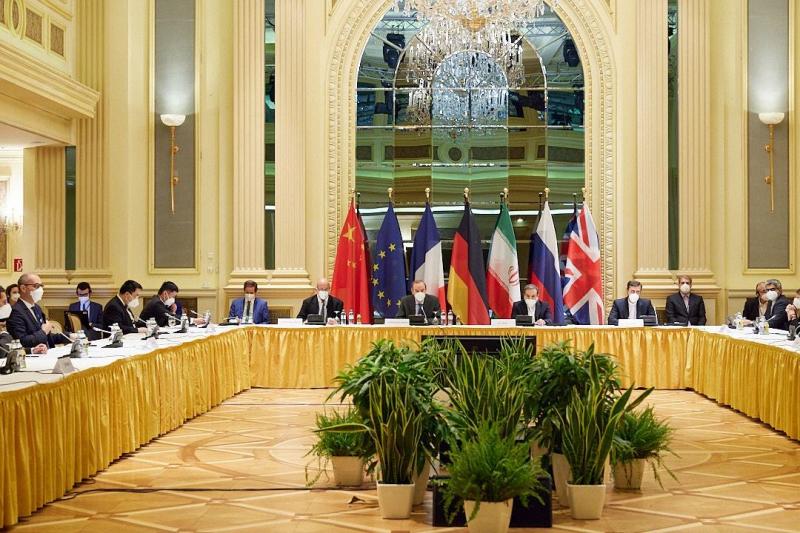Negotiations in Vienna aimed at restoring the 2015 Iran nuclear deal made "significant progress" over the past three weeks, although differences remain on some key points, Iran's foreign ministry spokesman Saeed Khatibzadeh said today.

The latest round of discussions resumed in December, with all the original parties to the deal working concurrently on issues relating to sanctions relief, Iran's nuclear activities, verification and sequencing. The talks broke up late last week to allow delegates to return to their countries for consultations with their respective governments.
"The negotiations over the past three weeks have seen significant progress in four areas: sanctions lifting, nuclear commitments, verification and guarantees," Khatibzadeh said, echoing some of the more positive assessments that have been made over the past few days.
Russia's envoy to the talks Mikhail Ulyanov said last week that a deal between Iran and the US could be sealed as early as the end of February. The US has also been more optimistic in its appraisal of the talks, with White House Middle East adviser Brett McGurk saying last week that we are "in the ballpark of a possible deal".
Khatibzadeh said progress has been uneven across the various issues. "When it comes to the sanctions, there are still some cases that have yet to be resolved, which our Western partners need to decide on," he said. "When it comes to verification and guarantees, some basic measures need to be taken. We have given our proposals… we're waiting for the West to respond."
The 2015 nuclear deal, known formally as the Joint Comprehensive plan of Action (JCPOA), began to fall apart in 2018 when then US president Donald Trump pulled Washington out of the deal and reimposed economic sanctions on Iran. Iran responded by starting to gradually ramp up its nuclear activities to levels beyond those stipulated in the deal.
The US sanctions made buying Iranian oil very difficult, and at one point reduced Iran's crude exports to well below 500,000 b/d from close to 2.4mn b/d previously. Shipments have picked up a little since the election of Joe Biden as US president in November 2020.
Argus estimates that Iran exported 728,500 b/d of crude in December, so a restoration of the deal in its original form could realistically add up to 1.6mn b/d of Iranian crude to global supply within 6-9 months of its implementation.